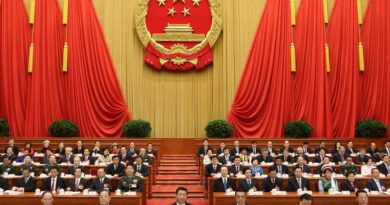Neoliberal Development Policies on Poor Countries
Immediately after the 2nd World War, well established corporations formed groups which had massive political influence on their governments in Europe and in the U.S. Neoliberalism emerged as a response from these few rich individuals to frustrate post-war policies that were ideal for the working class, and were aimed at elevating the general welfare of the state (Chang, 2004).
The idea behind neoliberal policies is to champion market forces and commercial activities, to be perceived as the most suitable ways of trade. Neoliberalism is also against government interference in social, economic, and financial affairs (Chang, 2004). This is the driving force of economic globalization creating a situation where there are no barriers between nations in trade, and market forces are the main determinants in the global economy.
These policies were adopted by governments and are still used as classical examples where well established corporations, and developed nations use their financial advantage in the world economy. During the Ronald Reagan and Margaret Thatcher era in the eighties, these policies were zealously employed in the U.S. and Europe (Makwana, 2006). These leaders were keen on intensifying free market and private ownership so as to create more economic competence and social welfare.
It led to deregulation, privatization, and unrestricted border trade giving a good platform for corporations to grow in size and influence for the next twenty five years. Currently, most European corporations that were established in those years have the most significant production economic units in the world (Makwana, 2006). Having a strong financial, political and economic edge, they are still advocating for their neoliberal objectives.
The financial elite, neoclassical economists and the ruling class in most of the countries have agreed to use neoliberal policies as a means of ensuring global prosperity. International development agencies like the International Monetary Fund are used to advocate, and implement these policies in the global economy. Many UN agencies are opposed to the use of neoliberal policies but the international development agencies are convinced, that it is efficient in reducing inequality and poverty in poor countries (Taşan-Kok, 2011).
Analysis
Analysis in the study will highlight the impact of neo-liberal development policies on poor or developing countries.
Developing countries have been preassured in one way or the other, to allow privatization of their public goods and services through the influence of international development agencies. Structural adjustment programs and trade agreements have been used as tools by international financial institutions, to ensure huge profits for their corporate counterparts (Castro, 2000). The corporations mainly based in Europe or the U.S. operating on a transnational scale target developing countries, and use their political connection with governments in these countries to penetrate the market.
When the corporations are finally granted authority to operate in developing countries, they create a scenario of foreign repatriation of profits. These ends up eliminating any prospect of social or economic development in the host countries, and reduce productivity in that country. The citizens of the host countries end up being dependents of foreign companies in terms of employment and products thus completing a vicious cycle.
In 2004, there was a public protest in Bolivia due to privatization of basic services which forced the government to cancel the privatization of their water services (Denzau, 2007). Privatization of water services in Bolivia was done in 1997 as a requirement by the World Bank so as to grant a loan. The World Bank had vested interest, since the company that was to invest in the water services was the French Multinational Suez a partner of the World Bank (Denzau, 2007).
Privatizations made numerous impoverished families to be denied these basic services since they could not afford them. A simple fee like the connection was beyond the reach of a significant number of Bolivians, costing more than half a year’s income of the ordinary Bolivian (Denzau, 2007). Basic services are intended to meet welfare needs, and not to enrich a few individuals at the expense of others.
Privatization of basic services in most cases is done with ill motives from a welfare point of view. When a government fails to prioritize the needs of its people, it directly translates to impoverishment. There are also other causes of impoverishment which are normally caused by environmental conditions like lack of water. Also, increasing effects of colonization, unfair trade structures, and political interferences are imposed to the developing countries by the dominant countries.
In 2002, it was noted by Transparency International that the numerous international conventions have not been successful at deterring multinational companies from illegally getting contracts and tenders (Chomsky, 1999). These large corporations buy out corrupt government officials of the developing countries especially in arms dealings, and the construction industry. The international focus should be directed towards ensuring that public services are controlled by the respective states.
Privatization of basic services creates a two-tier system. The market dictates the prices, and those who are not in a position to afford go without. This is an unfortunate situation considering that 45% of the world’s population survives on two dollars a day (Touraine, 2001). Significant development and poverty reduction can only be achieved if basic services are availed to the poor and guaranteed to all.
The UN universal declaration of human rights was formulated to ensure governments are committed towards providing basic human needs to its people (Dingo, 2012). Also the declaration stated that governments should shun any form of neoliberal pressure that threatens essential services for the benefit of private interests.
Conclusion
According to the study, the neoliberal ideology is old-fashioned and it is based on an egocentric model of the economy. It was formed by imperial powers and got adopted by economically established nations. The state of the global trade and finance structures clearly indicate that developed countries preserve their economic advantage by coercing poor countries to adopt neo-liberal policies, while they are not employing these policies.
This can be termed as economic colonialism. The main objective of neoliberal ideology is to eradicate all barriers in commerce, so as to privatize obtainable resources and services. This will result to a situation where the public is at the mercy of unpredictable market forces, and income will be generated to benefit few individuals. These policies are starting to fail as more countries are now wary of the severe repercussions. A good example as illustrated in the study is Bolivia. The policies are being rejected, since economic ideologies based on competition and vested interests are being replaced by policies based on cooperation and sharing of resources. It is not an easy step but in most of the affected countries, the citizens are piling pressure on their respective governments to re-acquire the essential services from private corporations.
References
Castro, F. (2000). Neoliberal globalisation and the third world. Chicago: Resistance Books.
Chang, H.-J. (2004). Reclaiming development: an alternative economic policy manual. London: Zed Books.
Chomsky, N. (1999). Profit over people: neoliberalism and global order. Boston: Seven Stories Press.
Denzau, A. (2007). Neoliberalism: national and regional experiments with global ideas. Boston: Routledge.
Dingo, R. (2012). The Megarhetorics of Global Development. Pittsburgh: University of Pittsburgh Press.
Makwana, R. (2006, November 23). Sustainablle economics to end global poverty. Share The World Resources , pp. 16-50.
Taşan-Kok, T. (2011). Contradictions of Neoliberal Planning: Cities, Policies and Politics. New York: Springer.
Touraine, A. (2001). Beyond Neoliberalism. Washington: Polity Press.




